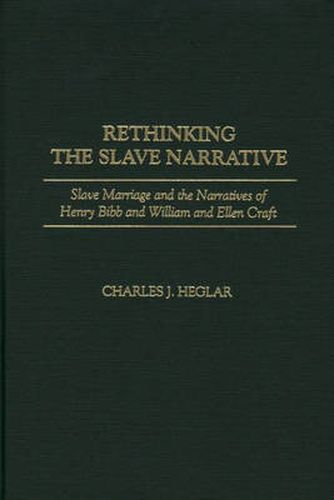The African American slave narrative is popularly viewed as the story of a lone male’s flight from slavery to freedom, best exemplified by the Narrative of the Life of Frederick Douglass, An American Slave (1845). On the other hand, critics have also given much attention to Harriet Jacobs’s Incidents in the Life of a Slave Girl (1861), to indicate how the form could have been different if more women had written in it. But in stressing the narratives of Douglass and Jacobs as models for the genre, scholars have ignored the formal and thematic importance of marriage and family in the slave narrative, since neither author explores slave marriage in their works. This book examines the central role of marriage in The Life and Adventures of Henry Bibb, an American Slave (1849) and Running a Thousand Miles for Freedom; or the Escape of William and Ellen Craft from Slavery (1860). Bibb’s slave wife and child account for significant innovations in the form and content of his narrative, while the Crafts’ mutual dependence as a married couple results in a sustained use of dramatic irony. The volume closes by offering a thoughtful consideration of the influence of Bibb and the Crafts on the later fiction of Douglass, William Wells Brown, and Martin Delany. In doing so, it invites a critical reexamination of current assumptions about slave narratives.
Read More





